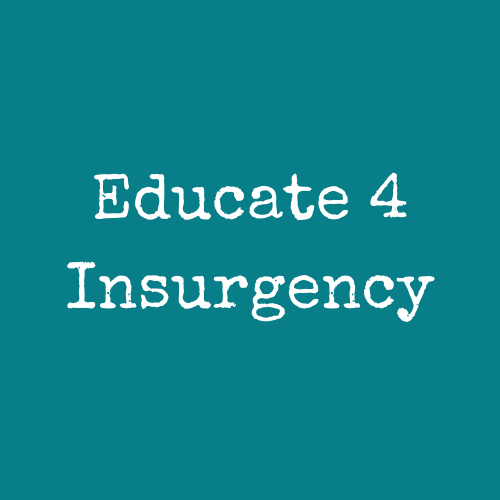Paid Peer-to-Peer Education
They do knowledge work. Young people use their minds as well as their bodies to share knowledge and skills with peers and with their communities. This can involve any part of the human experience—art, athletics, math, science, history, journalism, video production, farming, environmental justice, carpentry, coding, and so on.
The knowledge work is practical, creating tangible effects in the students’ lives: putting on a play, publishing a book or a video, teaching math, rehabbing a house, running a sports league (coaching, refereeing, scheduling); repairing computers or washing machines, etc.
Students earn a significant weekly or bi-weekly wage in their enterprise, not just an occasional stipend. There can be several wage rates in each youth-operated enterprise, depending on the particular skill or the student’s experience and level of responsibility in the enterprise. The young people can decide these rates collectively. No student should have to sell drugs, prostitute themselves, or work late hours in fast food at a suburban mall just so they can pay their phone bill.
The work is indigenous. Student workers and leaders are native to the community whose youth participate in the enterprises. Any older facilitators, mentors or teachers are also indigenous or are invited into the community by the young people and their families, as opposed to being assigned from external philanthropies, non-profits, or government agencies.
Use of funds is controlled by the youth-operated enterprise, ideally as a local network of enterprises that share similar accounting, reporting, financial control, and governance procedures to support transparency and minimize malfeasance. This financial work is itself highly educative and important.
Decision processes are authentically participatory. More than simply voting, the youth-operated enterprises act thoughtfully to warn against and counteract concentrations of power in the hands of a few. The Young Negroes’ Cooperative League of the 1930s and the Student Nonviolent Coordinating Committee of the 1960s are the models. Both were instructed in their organizing and economic strategies by Ella Baker, “a black feminist even before the term was invented [who]…criticized unchecked egos, objected to undemocratic structures, protested unilateral decision making, condemned elitism, and refused to nod in loyal deference to everything ‘the leader’ had to say.”
Roles are built in for successive generations as the work continues. Students who graduate from high school after working with one of the youth-operated enterprises sometimes choose to stay involved in teaching or facilitating roles. They function as mentors, instructors, troubleshooters, mediators, fund raisers, generally tasked with ensuring the success of the younger members of the collective, but careful not to usurp the democratic power of their mentees. Elders in the community steeped in the ethos of indigenous self-determination also find mutually nourishing work with the younger people who are at the center, preserving historical knowledge and wisdom, while accepting that it will be adapted by young people to new circumstances. None of this needs to be done for free. Recognition is given to the material needs of all generational layers in the community.
NOT JUST THEORY! Young people in Baltimore have earned more than $4 million dollars in the past 10 years through peer-to-peer employment structures.
